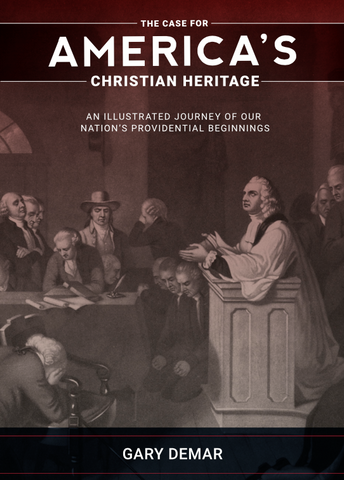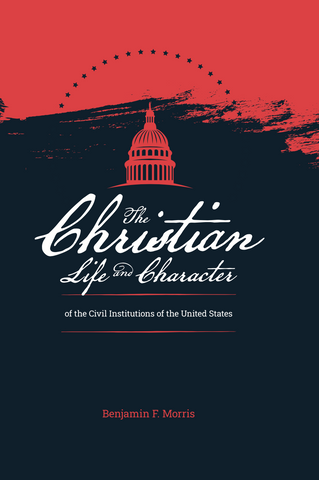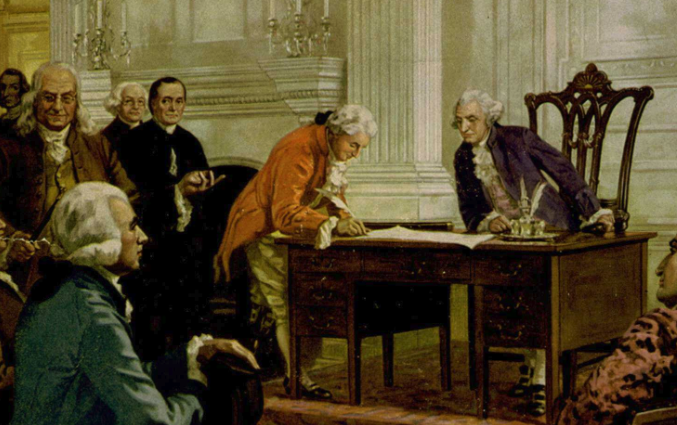“I am apt to believe that it will be celebrated, by succeeding Generations, as the great anniversary Festival. It ought to be commemorated, as the Day of Deliverance by solemn Acts of Devotion to God Almighty…. You will think me transported with Enthusiasm, but I am not. — I am well aware of the Toil and Blood and Treasure, that it will cost Us to maintain this Declaration, and support and defend these States. — Yet through all the Gloom I can see the Rays of ravishing Light and Glory. I can see that the End is more than worth all the Means. And that Posterity will triumph in that Days Transaction, even altho We should rue it, which I trust in God We shall not.” — Letter from John Adams to Abigail Adams, 3 July 1776.
Libertarians are working hard to make the case that their worldview “can fix what’s wrong with America.” In their book The Declaration of Independents, authors Nick Gillespie and Matt Welch argue for a Libertarian ethic based on the Declaration of Independence, a document they describe as “the most influential English-language formulation of liberty written during the 1700s.” (ix)
They focus on what they consider to be “the refreshing blast of radical Enlightenment thought contained within” the following “three dozen words” (ix):
“We hold these truths to be self-evident, that all men are created equal, that they are endowed by their Creator with certain unalienable Rights, that among these are Life, Liberty and the pursuit of Happiness.”
I was surprised that the authors would begin their defense by an appeal to this section of the Declaration that specifically links Inalienable rights” with a “Creator.” A Creator assumes the existence of God. The existence of God presupposes a lawgiver, and yet Libertarians almost never reference God in defense of their worldview. They can’t and be consistent. It’s one thing to appeal to a Creator in defense of inalienable rights and the undefined “pursuit of happiness” to keep politicians from ruling and ruining our lives, but it’s another thing to ignore the Creator when it comes to moral particulars given that the Declaration also states that the He is “the Supreme Judge of the world.”

The Case for America's Christian Heritage
It’s not enough to relive history. There’s much work before us to reset the foundation stones of a firm reliance on Divine Providence. We need to heed the words of Benjamin Franklin who quoted Psalm 127:1 during the drafting process of the Constitution: “except the Lord build the house they labor in vain that build it,” and “that without His concurring aid we shall succeed in this political building no better, than the Builders of Babel.” The principles that were true and necessary centuries ago for building nations are equally true and necessary today. Let’s get to work!
Buy NowWhen Gillespie and Welch were interviewed by John Stossel, they pushed for the acceptance of “alternative lifestyles,” including homosexual marriage based, I suspect, on non-governmental interference and the God-given right to pursue happiness if this pursuit doesn’t hurt anyone else. But if God was the Supreme Judge of a nation like Great Britain and a ruler like King George III, then why isn’t He the judge of all of us as well? It’s one thing to make the case, as Libertarians do, that the State is under moral and jurisdictional restraint in governing in the civil realm, but it’s another thing to exclude individuals from the same moral scrutiny in self-government.
While God gets a nod in The Declaration of Independents, He’s never mentioned again except when the authors make the point that America is the most religiously diverse nation in the world. But with all of America’s religious diversity, it seems that religion is irrelevant in shaping any national moral consensus and has led to “everyone doing what is right in his own eyes” (Judges 17:6).

Christian Life and Character
Benjamin Franklin Morris' book has been out of print for over 100 years. If you can find an original copy, it's only because you have looked in the deep recesses of university libraries where the volume is likely collecting dust on dimly lit library shelves. Organizations like the ACLU and Americans United for Separation of Church and State have done their best to ignore the content of the massive compilation of original source material found in this book. If Americans ever become aware of the facts assembled by the author in this historic encyclopedia of knowledge, arguments for a secular founding of America will turn to dust.
Buy NowEvery signer of the Declaration of Independence, including its author Thomas Jefferson, believed that homosexuality was against “the laws of nature and of nature’s God,” a phrase also found in the Declaration. Even the Supreme Court acknowledged that the pursuit of happiness and inalienable rights did not include the moral or civil acceptance of homosexuality. In Bowers vs. Hardwick (1986) the Supreme Court concluded:
“Sodomy was a criminal offense at common law and was forbidden by the laws of the original 13 States when they ratified the Bill of Rights. In 1868, when the Fourteenth Amendment was ratified, all but 5 of the 37 States in the Union had criminal sodomy laws. (Bowers vs. Hardwick (1986), 478 US 186, 92 L Ed 2d 140, 106 S Ct 2841, reh den (US) 92 L Ed 2d 779, 107 S. Ct 29., 147‑48. The plaintiffs in the Hardwick case were caught engaging in the act of sodomy only after the police entered the house on an unrelated case.)
So, if you are a Libertarian, please don’t try to make your case for homosexuality and homosexual marriage by an appeal to the Declaration of Independence. It can’t be done. In addition, to remove God from the discussion won’t help either. Once God is gone, everything becomes permissible and possible, whether it’s consented to or not. Thomas Jefferson understood this.
We need to keep in mind that Jefferson was not the sole author of the Declaration. Dr. Archie Jones shows that a five-man committee “had been appointed by the Continental Congress” to draft the Declaration. “Then the other members of the committee reviewed and revised Jefferson’s draft. The committee included Benjamin Franklin, who was possibly the only other non-Christian among the framers of the Declaration, but who, like Jefferson, was apparently what later would be called a Unitarian—not a Deist—and who, like Jefferson, gave verbal and financial support to Christianity. Finally, the Continental Congress, acting as a committee of the whole, reviewed and revised the Declaration, putting the document into its final form. A cursory study indicates that at least forty-seven of the fifty-six signers of the Declaration were Christians.”
The following is from A Patriot’s History of the United States by Larry Schweikart and Michael Allen:
“[Thomas] Jefferson wrote the Virginia Sabbath law, as well as ordinances sanctioning public days of prayer and fasting and even incorporated some of the Levitical code into the state’s marriage laws.” (97).[1]
In addition, “A Bill for Proportioning Crimes and Punishment in Cases Heretofore Capital,” one of 126 Bills submitted to the Virginia Assembly in 1779 (three years after the Declaration of Independence was drafted and signed) by the Committee of Revisors, states the following:
Whosoever shall be guilty of Rape, Polygamy, or Sodomy with man or woman shall be punished, if a man, by castration, if a woman, by cutting thro’ the cartilage of her nose a hole of one-half diameter at the least. (Bill 64)
The committee was headed by Thomas Jefferson. The members worked for two years revising the colonial laws as Virginia was no longer obligated to follow the laws of England.
[1] Report of the Committee of Revisors Appointed by the General Assembly of Virginia in MDCCLXXVI. Published by Order of the General Assembly, and Printed by Dixon & Holt, in the City of Richmond (November 1784), 90 pages folio. The Report was presented June 18, 1779, by Thomas Jefferson and George Wythe. Five hundred copies were ordered to be printed June 1, 1784.

